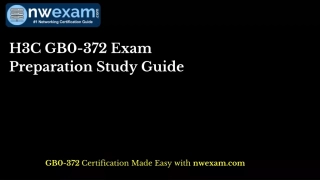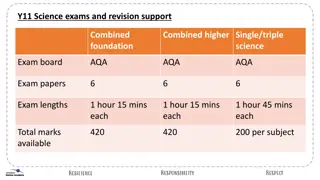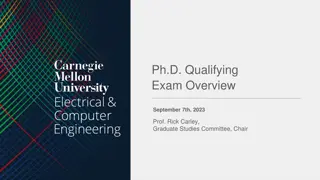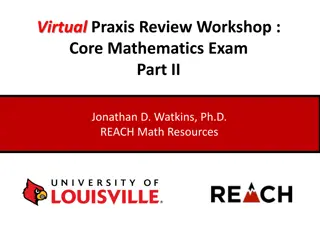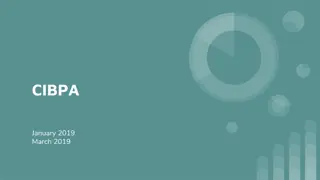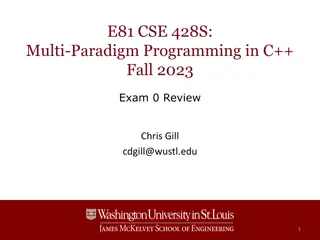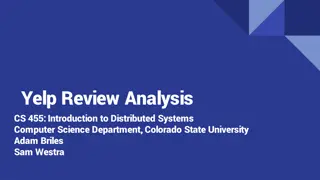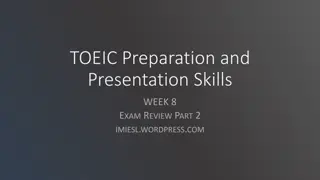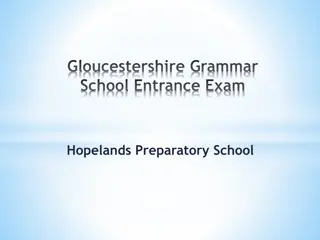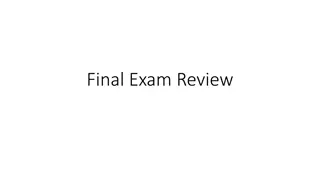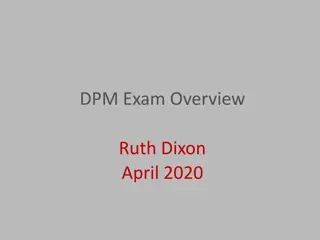Insights on Exam Result Reviews and Grade Changes
The data provides detailed information on exam result reviews and grade changes in 2015, including the number of requests, percentage of grade changes, average turnaround times, and subjects with the most requests. Requests for reviews are more common when marks are near grade boundaries, leading to potential grade changes. The content highlights the processes and impacts of inquiries about results and appeals, particularly in the context of academic assessments.
Download Presentation

Please find below an Image/Link to download the presentation.
The content on the website is provided AS IS for your information and personal use only. It may not be sold, licensed, or shared on other websites without obtaining consent from the author.If you encounter any issues during the download, it is possible that the publisher has removed the file from their server.
You are allowed to download the files provided on this website for personal or commercial use, subject to the condition that they are used lawfully. All files are the property of their respective owners.
The content on the website is provided AS IS for your information and personal use only. It may not be sold, licensed, or shared on other websites without obtaining consent from the author.
E N D
Presentation Transcript
Enquiries about results and appeals Julie Swan March 2016
The scale of awarding in England in 2015 by four exam boards 4,835,712 GCSEs awarded 782,325 A levels awarded 1,286,125 AS awarded (Total UK undergraduate and postgraduate students in 2014/15 2,266,075 (HESA))
Additional pressures Exams taken second half of May end June All AS and A levels results announced on the same date and given to HEIs in advance (results will be sent to schools/colleges 17 August 2016) All GCSE results announced on the same date
Enquiries about results 2015 England, Wales and Northern Ireland 572,350 requests for a review of marking (across the qualifications) in respect of 506,750 qualifications (reviews are of individual assessments) 90,650 grades were changed (1.1% of all grades issued) Reviews of marking turned around in an average of 9 days for GCSE A level reviews (priority reviews) turned around on average in 5 days (the average was 7 days in 2014), although there was a 42% increase in the number of requests for priority reviews in 2015 over 2014
Grade changes A levels 39,900 requests for priority review an increase of 42% on 2014 Relating to 28,400 qualifications 5,000 grade changes 18% of those requesting a review 99% of the grade changes were upwards
Most requests for review by subject, by percentage of entries, varies but typically includes for A levels Music Philosophy History English literature
Requests for reviews are more likely to be made when a mark is just below a key grade boundary
Requests for reviews are more likely to be made when a mark is just below a key grade boundary
So. A very small change in mark, where the original mark was just below a grade boundary, is likely to lead to a grade change
Ofqual consultation closes 11 March We acknowledge some marking errors are inevitable in such a large scale system We raise concerns informed by research that legitimate marks are being revised on review, introducing the potential for unfairness We propose: reviewers should only be permitted to change marks that could not reasonably have been given - legitimate marks must stand reviewers should be specifically trained for and monitored while reviewing initial marking grounds for an appeal that can only be undertaken once a marking review is complete are extended to include unreasonable application of the mark scheme schools/colleges should have access to marked scripts before deciding whether to request a review
Questions Will you be responding to our consultation -closes 11 March? Do your admission arrangements allow for the small number of A level students whose grade is increased after a review or marking?



